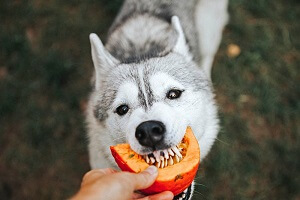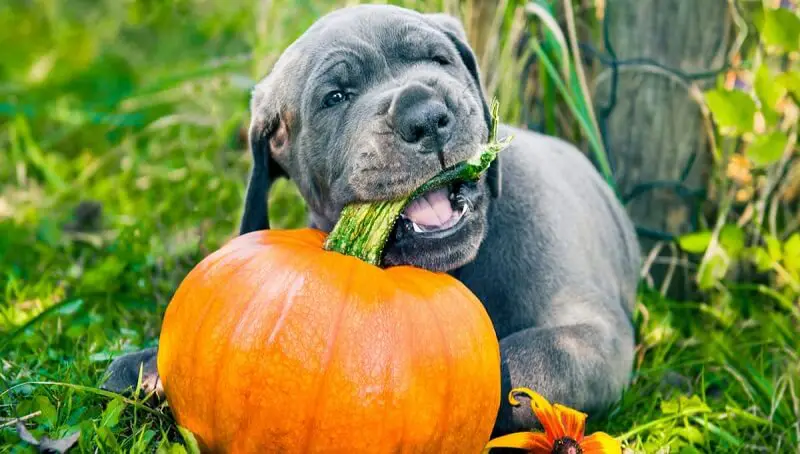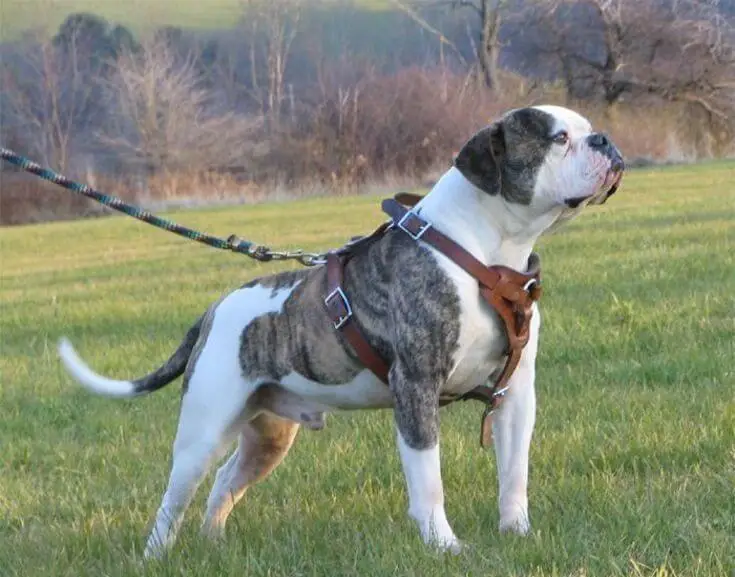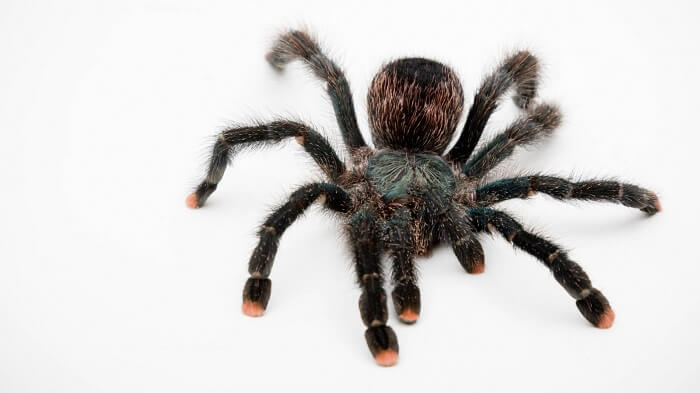Autumn is the season of pumpkins. But is pumpkin good for dogs? Of course, it is! In this article, I will tell you what to pay attention to and how you can enjoy the season of pumpkins together with your dog. Pumpkin is a great supplement that any dog will enjoy finding in the bowl.
Autumn came, and with it came the harvest period for pumpkins. Whether it’s pumpkin soup, puree, baked with vegetables, or pumpkin risotto, pumpkin colorings are more popular than ever in people’s kitchens. Not only do they look beautiful and taste good, but they are also extremely healthy.
How healthy is pumpkin for dogs?
Pumpkin is very healthy for the dog too. The pumpkin types Hokkaido, Butternut, etc. are true vitamin bombs, which your dog will gladly benefit from. Winter vegetables are high in fiber, and contain essential vitamins such as vitamins A, C, and E, as well as minerals such as magnesium, potassium, iron, and zinc.
What types of pumpkins are suitable for dogs?
Edible pumpkins such as Hokkaido, Butternut, Bishop’s cap, acorn, or spaghetti are not good just for us, but for dogs too. They taste good, to the delight of your furry friend, whether they are mashed, baked, cooked, or grilled.
Important: Buy pumpkins from the market, from the supermarket, or from organic stores. The pumpkins from stores do not have the dangerous bitter substance, cucurbitacin, which makes them also edible for dogs. In the professional cultivation of pumpkins, zucchini, and cucumbers, bitter substances are eliminated.
Don’t want to read the full article? Listen to a summarized version:
Benefits of pumpkin in dogs
In the diet of dogs or cats, pumpkin can be used in the form of pumpkin puree, as such, or canned. For the canned one, you should be careful not to contain sugar, salt, preservatives, or dangerous additives such as xylitol.
You might also like my articles on whether dogs can eat blueberries and coconut and whether deer can eat pumpkins.
Pumpkin puree can be used as an occasional nutritional supplement added to the main food. Dogs can eat 1 to 3 tablespoons at a meal. It contributes to good digestion and a normal appearance of the stool.
As in people’s diets, due to its fiber content, pumpkin puree can be used in animals that have weight problems, helping to better digestion, eliminate toxins, and more quickly install the feeling of satiety. However, this property should be used in moderation, as excess fiber is not good either.
Pumpkin can also be used in case of low-intensity digestive disorders, like mild diarrhea or mild constipation. If your dog suffers from constipation, the fibers in the composition of pumpkin puree retain water, increase the content of the digestive tract and have a Prebiotic action, ensuring healthy digestion. In these cases, pumpkin puree can be taken for several days in a row, along with water provision at his discretion, for good hydration. For situations where the animal has mild diarrhea, the soluble fiber in the pumpkin absorbs water and turns into a protective gel in the intestinal mucosa, reducing the intensity and number of episodes, and the content of vitamins and minerals compensates for their loss during diarrhea. If the symptoms do not improve within a few days, it is very important for your dog to be consulted by a veterinarian.
Moreover, through its content of vitamins (beta-carotene, vitamin A, vitamin C, B complex, etc.), minerals, and unsaturated good fatty acids, pumpkin consumption contributes to the health of the skin and fur of the dog.
The use of the vermifuge property to eliminate intestinal parasites is not recommended in animals, since the amount of pumpkin seeds needed to be consumed to achieve this effect is quite large and can cause digestive disorders, although some articles might recommend this.
Can pumpkins be poisonous to dogs?
As healthy as pumpkins can be for dogs, keep in mind that problems can still occur. Dogs cannot eat all kinds of pumpkins. Try to avoid pumpkins that grow in your garden and especially the wild ones from the field. They may contain dangerous substances that are toxic to humans and animals.
Never give your dog wild or home-grown pumpkins! Cucurbitacin can lead to severe poisoning, which puts the life of the dog at risk. By the way, not even cooking will eliminate bitter substances.
Symptoms of pumpkin poisoning in dogs
 Ingestion of poisonous bitter substances from wild and ornamental pumpkins manifests itself in dogs just like in humans, mainly through gastrointestinal symptoms. These include:
Ingestion of poisonous bitter substances from wild and ornamental pumpkins manifests itself in dogs just like in humans, mainly through gastrointestinal symptoms. These include:
- Vomiting
- Diarrhea
- Excessive salivation
- Other signs of pumpkin poisoning can be tremors or excessive convulsions. The consequences may be anaphylactic shock or this can even turn lethal in some dogs.
If you notice any of the symptoms described above after the dog has eaten pumpkin, take it to the veterinarian as soon as possible or call a veterinary ambulance.
As a first aid measure, you can give your dog medicinal charcoal. Activated charcoal, which should already be a part of your first aid kit, prevents toxins from getting into the blood.
If in doubt, taste it!
If you want to be sure that the pumpkin is good for the dog and does not contain bitter substances, taste a piece before giving it. The same is true for zucchini and cucumbers, which are part of the same family.
Unlike dogs, humans have about 9000 taste receptors and can perceive bitter substances more quickly. Dogs also taste bitter, but unfortunately too late. Dogs are gourmands and most often swallow bitter pumpkin immediately, even before their taste buds give the alarm.
Conclusion
The good news is: You generally don’t have to worry about dangerous bitter substances in the case of commercial pumpkins. Do the tasting test described above if you want to be 100% sure.
Pumpkin in dogs is healthy and very tasty, especially if we are talking about the types of professionally bred pumpkins. Pumpkin is also perfect for overweight dogs or dogs with allergies or food intolerances, being a perfect supplement in the dog’s food bowl.




